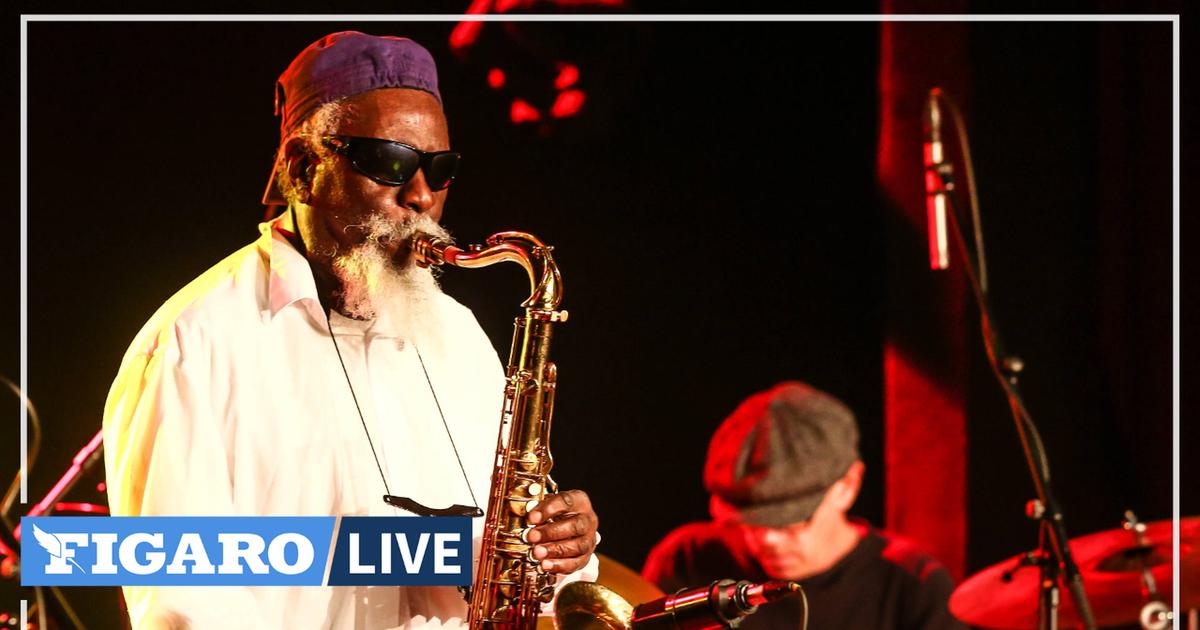He was one of the pillars of so-called mystical jazz.
Pharoah Sanders, who had embraced the influence of African and Indian music, died on Saturday.
He was 81 years old.
His label Luaka Bop said in a statement that the renowned saxophonist had "peacefully passed away" in Los Angeles, surrounded by his family and loved ones.
He had explored his favorite instrument to the limits of its timbre, drawing on Eastern, Indian and African traditions to transform his music into a mystical experience.
With his saxophones that he manhandled, using mouthpieces by the hundreds by dint of gnawing them, shouting in the bell of his instruments or making them vibrate under the power of his continuous breath, he widened even more the horizons of free-jazz, movement born at the end of the 1950s which freed improvisations from harmonic constraints.
Pharoah Sanders is considered to be one of the heirs of the great John Coltrane, who died prematurely in 1967, and for whom he had signed some aggressive solos in the last album "Live in Japan", released posthumously in 1973. But Sanders, who played also alto and soprano saxophone, was not unanimous and never reached the popularity of Coltrane or Ornette Coleman, who nevertheless saw in him "probably the best tenor saxophone player in the world".
Stridness and voluptuousness
The sound he produced, evolving between stridency and voluptuousness, consecrated him as one of the masters of spiritual jazz.
This current, at the end of the sixties, wanted to bring together societies divided by racial, social and political tensions on a sonorous land where peace and happiness for all would be preached in a joyful religious syncretism.
His iconic "The Creator has a master plan", a nearly 33-minute track from his album "Karma" (1969), has become one of its anthems: we hear it there -- and we see it there. , eyes almost rolled back -- entering a trance where he seems to exorcise his demons before reaching a form of ecstasy.
Farrell “Pharoah” Sanders was born on October 13, 1940 in Little Rock, Arkansas to a modest Baptist family.
He played the clarinet in the orchestra of his school reserved for blacks then frequented the blues clubs of the city, accompanying visiting virtuosos like Junior Parker.
In 1959, he moved to Oakland (California), where he joined various rhythm and blues groups under the name Little Rock.
He sells his blood to survive
He meets John Coltrane, his idol, who plays in town with the quintet of Miles Davis.
He then had a fixed idea, to go to New York, where he arrived in 1961. He sold his blood there to survive, slept in the subway until he met Sun Ra, a mysterious pianist and jazz composer, passionate about Egyptology. and UFOs.
Sun Ra and Coltrane integrate him into their group and he takes on a new name, Pharoah.
After Coltrane's death, Pharoah Sanders will continue to record as a leader.
"My sound is serious: many of the young people have a bright sound, but I like it to be serious with more roundness, depth and feeling", he described in 1996 in an interview with the San Francisco Chronicle.
Sanders, recognizable among all with his long goatee turned white and his fez, made a brief foray into pop in 1971 with his album "Thembi", in tribute to his wife.
But it is above all outside the United States that he finds his inspiration.
In 1969, he was inspired by African mysticism, particularly Sufism, in “Jewels of Thought”.
Years later, he collaborated in "The Trance of Seven colors" with Mahmoud Guinia, Moroccan musician master of Gnawa music.
In 1996, his album "Message from Home" explored traditional Ghanaian music.
He is also interested in Indian musicians like Bismillah Khan who introduced the shana, a kind of oboe played in Indian processions, and Ravi Shankar, who popularized the sitar.
In 2021 he had released
Promises
a co-op album with London house producer Floating Points and the London Symphony Orchestra.
“A perfect blend of ambient, jazz and classical.
A masterpiece that says nothing of the time but touches on the cosmic.
At times barely audible, at times overwhelmingly intense, the music composed by this duo is in no way a clash of generations, but rather the meeting between two sonic architects, masters of their own genres", wrote Le Figaro to its exit.

